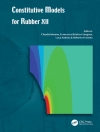Discover how the latest computational tools are building our
understanding of particle interactions and leading to new
applications
With this book as their guide, readers will gain a new
appreciation of the critical role that particle interactions play
in advancing research and developing new applications in the
biological sciences, chemical engineering, toxicology, medicine,
and manufacturing technology The book explores particles ranging in
size from cations to whole cells to tissues and processed
materials. A focus on recreating complex, real-world dynamical
systems helps readers gain a deeper understanding of cell and
tissue mechanics, theoretical aspects of multiscale modeling, and
the latest applications in biology and nanotechnology.
Following an introductory chapter, Multiscale Modeling of
Particle Interactions is divided into two parts:
Part I, Applications in Nanotechnology, covers:
* Multiscale modeling of nanoscale aggregation phenomena:
applications in semiconductor materials processing
* Multiscale modeling of rare events in self-assembled systems
* Continuum description of atomic sheets
* Coulombic dragging and mechanical propelling of molecules in
nanofluidic systems
* Molecular dynamics modeling of nanodroplets and
nanoparticles
* Modeling the interactions between compliant microcapsules and
patterned surfaces
Part II, Applications in Biology, covers:
* Coarse-grained and multiscale simulations of lipid bilayers
* Stochastic approach to biochemical kinetics
* In silico modeling of angiogenesis at multiple scales
* Large-scale simulation of blood flow in microvessels
* Molecular to multicellular deformation during adhesion of immune
cells under flow
Each article was contributed by one or more leading experts and
pioneers in the field. All readers, from chemists and biologists to
engineers and students, will gain new insights into how the latest
tools in computational science can improve our understanding of
particle interactions and support the development of novel
applications across the broad spectrum of disciplines in biology
and nanotechnology.
Tabella dei contenuti
CONTRIBUTORS.
1 Introduction (Michael R. King and David J. Gee).
PART I: APPLICATIONS IN NANOTECHNOLOGY.
2 Multiscale Modeling of Nanoscale Aggregation Phenomena:
Applications in Semiconductor Materials Processing (Talid
Sinno).
3 Multiscale Modeling of Rare Events in Self-Assembled Systems
(Dmitry I. Kopelevich).
4 Continuum Description of Atomic Sheets (Constantine
Pozrikidis).
5 Coulombic Dragging and Mechanical Propelling of Molecules in
Nanofluidic Systems (Petr Král and Boyang Wang).
6 Molecular Dynamics Modeling of Nanodroplets and Nanoparticles
(D. Lussier, N.M.P. Kakalis, and Y. T. Ventikos).
7 Modeling the Interactions Between Compliant Microcapsules and
Patterned Surfaces (Anna C. Balazs and Alexander
Alexeev).
PART II: APPLICATIONS IN BIOLOGY.
8 Coarse-Grained and Multiscale Simulations of Lipid Bilayers
(Harry A. Stern).
9 Stochastic Approach to Biochemical Kinetics (Ian J.
Laurenzi).
10 In Silico Modeling of Angiogenesis at Multiple Scales: From
Nanoscale to Organ System (Amina A. Qutub, Feilim Mac Gabhann,
Emmanouil D. Karagiannis, and Aleksander S. Popel).
11 Large-Scale Simulation of Blood Flow in Microvessels
(Prosenjit Bagchi).
12 Molecular to Multicellular Deformation During Adhesion of
Immune Cells Under Flow (David J. Gee and Michael R.
King).
INDEX.
Circa l’autore
MICHAEL R. KING, Ph D, is an Associate Professor of
Biomedical Engineering at Cornell University. King is an expert on
the receptor-mediated adhesion of circulating cells, and has
developed new computational and in vitro models to study the
function of leukocytes, platelets, and stem, stem and cancer cells
under flow. He is a former Whitaker investigator, a James D. Watson
Investigator of New York State, and an NSF CAREER Award recipient.
King received the 2008 ICNMM Outstanding Researcher Award from the
American Society of Mechanical Engineers, was the 2007-2008
Professor of the Year in Engineering at the University of
Rochester, and received the 2009 Outstanding Contribution for a
Publication in the international journal Clinical Chemistry.
DAVID J. GEE, Ph D, is an Assistant Professor of
Mechanical Engineering at the Rochester Institute of Technology,
where he studies the inflammatory response and investigates
applications in receptor-mediated adhesion. Previously, Dr. Gee was
a research assistant professor and postdoctoral fellow in the
Department of Biomedical Engineering at the University of
Rochester, where he studied inflammation, and has also served as a
research engineer at the Institute for Advanced Technology at The
University of Texas at Austin, where he specialized in impact
mechanics and computational solid mechanics.












